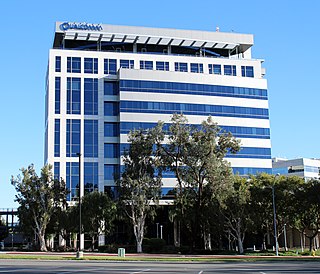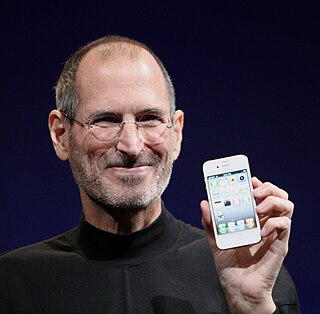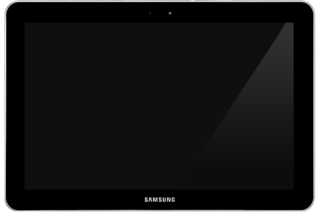Related Research Articles

Qualcomm is an American multinational corporation headquartered in San Diego, California, and incorporated in Delaware. It creates semiconductors, software, and services related to wireless technology. It owns patents critical to the 5G, 4G, CDMA2000, TD-SCDMA and WCDMA mobile communications standards.
A declaratory judgment, also called a declaration, is the legal determination of a court that resolves legal uncertainty for the litigants. It is a form of legally binding preventive by which a party involved in an actual or possible legal matter can ask a court to conclusively rule on and affirm the rights, duties, or obligations of one or more parties in a civil dispute. The declaratory judgment is generally considered a statutory remedy and not an equitable remedy in the United States, and is thus not subject to equitable requirements, though there are analogies that can be found in the remedies granted by courts of equity. A declaratory judgment does not by itself order any action by a party, or imply damages or an injunction, although it may be accompanied by one or more other remedies.
In international law and business, patent trolling or patent hoarding is a categorical or pejorative term applied to a person or company that attempts to enforce patent rights against accused infringers far beyond the patent's actual value or contribution to the prior art, often through hardball legal tactics. Patent trolls often do not manufacture products or supply services based upon the patents in question. However, some entities which do not practice their asserted patent may not be considered "patent trolls" when they license their patented technologies on reasonable terms in advance.

Motorola Solutions, Inc., is an American video equipment, telecommunications equipment, software, systems and services provider that succeeded Motorola, Inc., following the spinoff of the mobile phone division into Motorola Mobility in 2011. The company is headquartered in Chicago, Illinois.
NTP, Inc. is a Virginia-based patent holding company founded in 1992 by the late inventor Thomas J. Campana Jr. and Donald E. Stout. The company's primary asset is a portfolio of 50 US patents and additional pending US and international patent applications. These patents and patent applications disclose inventions in the fields of wireless email and RF Antenna design. The named inventors include Andrew Andros and Thomas Campana. About half of the US patents were originally assigned to Telefind Corporation, a Florida-based company partly owned by Campana.
The multinational technology corporation Apple Inc. has been a participant in various legal proceedings and claims since it began operation and, like its competitors and peers, engages in litigation in its normal course of business for a variety of reasons. In particular, Apple is known for and promotes itself as actively and aggressively enforcing its intellectual property interests. From the 1980s to the present, Apple has been plaintiff or defendant in civil actions in the United States and other countries. Some of these actions have determined significant case law for the information technology industry and many have captured the attention of the public and media. Apple's litigation generally involves intellectual property disputes, but the company has also been a party in lawsuits that include antitrust claims, consumer actions, commercial unfair trade practice suits, defamation claims, and corporate espionage, among other matters.

The history of the iPhone development by Apple Inc. spans from the early 2000s to about 2010. The first iPhone was released in 2007. By the end of 2009, iPhone models had been released in all major markets.

MagicJack is an Internet-based telephone service (VoIP) provider in the United States and Canada. It offers nationwide VoIP and cellphone services.

Jacobsen v. Katzer was a lawsuit between Robert Jacobsen (plaintiff) and Matthew Katzer (defendant), filed March 13, 2006 in the United States District Court for the Northern District of California. The case addressed claims on copyright, patent invalidity, cybersquatting, and Digital Millennium Copyright Act issues arising from Jacobsen under an open source license developing control software for model trains.

Vringo was a technology company that became involved in the worldwide patent wars. The company won a 2012 intellectual property lawsuit against Google, in which a U.S. District Court ordered Google to pay 1.36 percent of U.S. AdWords sales. Analysts estimated Vringo's judgment against Google to be worth over $1 billion. The Court of Appeals for the Federal Circuit overturned the District Court's ruling on appeal in August 2014 in a split 2-1 decision, which Intellectual Asset Magazine called "the most troubling case of 2014." Vringo appealed to the United States Supreme Court. Vringo also pursued worldwide litigation against ZTE Corporation in twelve countries, including the United Kingdom, Germany, Australia, Malaysia, India, Spain, Netherlands, Romania, China, Malaysia, Brazil and the United States. The high profile nature of the intellectual property suits filed by the firm against large corporations known for anti-patent tendencies has led some commentators to refer to the firm as a patent vulture or patent troll.

The Samsung Galaxy Tab 10.1 is an Android-based tablet computer designed and manufactured by Samsung, introduced in 2011. It is part of the Samsung Galaxy Tab series, and features a 10.1-inch (260 mm) display and a 1 GHz dual-core Nvidia Tegra 2 processor.

The Samsung Galaxy Tab 8.9 is an Android-based tablet computer designed and manufactured by Samsung, introduced on 22 March 2011 at CTIA wireless convention in its Samsung Unpacked event in Orlando. It is part of the Samsung Galaxy Tab series, and features an 8.9-inch display and a 1 GHz dual-core Nvidia Tegra 2 processor.

Rambus Inc. v. NVIDIA Corporation was a patent infringement case between Rambus and Nvidia. The case was heard in the United States District Court for the Northern District of California.
The smartphone wars or smartphone patents licensing and litigation refers to commercial struggles among smartphone manufacturers including Sony Mobile, Google, Apple Inc., Samsung, Microsoft, Nokia, Motorola, Huawei, LG Electronics, ZTE and HTC, by patent litigation and other means. The conflict is part of the wider "patent wars" between technology and software corporations.
Apple Inc. v. Samsung Electronics Co., Ltd. was the first of a series of ongoing lawsuits between Apple Inc. and Samsung Electronics regarding the design of smartphones and tablet computers; between them, the companies made more than half of smartphones sold worldwide as of July 2012. In the spring of 2011, Apple began litigating against Samsung in patent infringement suits, while Apple and Motorola Mobility were already engaged in a patent war on several fronts. Apple's multinational litigation over technology patents became known as part of the mobile device "smartphone patent wars": extensive litigation in fierce competition in the global market for consumer mobile communications. By August 2011, Apple and Samsung were litigating 19 ongoing cases in nine countries; by October, the legal disputes expanded to ten countries. By July 2012, the two companies were still embroiled in more than 50 lawsuits around the globe, with billions of dollars in damages claimed between them. While Apple won a ruling in its favor in the U.S., Samsung won rulings in South Korea, Japan, and the UK. On June 4, 2013, Samsung won a limited ban from the U.S. International Trade Commission on sales of certain Apple products after the commission found Apple had violated a Samsung patent, but this was vetoed by U.S. Trade Representative Michael Froman.

Microsoft Corp. v. Motorola Inc., 696 F.3d 872 was a United States Court of Appeals for the Ninth Circuit case about Reasonable and Non-Discriminatory (RAND) Licensing and foreign anti-suit injunction.
Medtronic, Inc. v. Mirowski Family Ventures, LLC, 571 U.S. 191 (2014), is a case of the Supreme Court of the United States that deals with civil procedure, and specifically with the question of the burden of proof required in pursuing declaratory judgments.
Google has been involved in multiple lawsuits over issues such as privacy, advertising, intellectual property and various Google services such as Google Books and YouTube. The company's legal department expanded from one to nearly 100 lawyers in the first five years of business, and by 2014 had grown to around 400 lawyers. Google's Chief Legal Officer is Senior Vice President of Corporate Development David Drummond.
In 2011, Huawei and Samsung began negotiating cross-licenses for their patent portfolios, which includes SEPs. Because both parties are SEP holders, they had mutual obligations to offer each other FRAND licenses. However, they failed to reach an agreement after years of negotiating. Having reached a deadlock, Huawei filed lawsuits against Samsung in the US on 24 May 2016 and China on 25 May 2016. In retaliation, Samsung filed lawsuits against Huawei in the US and China, along with various counterclaims and requests for patent invalidations. As of 13 April 2018, the parties were involved in 42 patent infringement actions in China.
Verkada Inc. is a San Mateo, CA-based company that develops cloud-based building security and operating systems. The company combines security equipment such as video cameras, access control systems and environmental sensors, with cloud based machine vision and artificial intelligence.
References
- ↑ Motorola Mobility, Inc. v. Apple Inc., In the Matter of Certain Wireless Communication Devices, Portable Music and Data Processing Devices, Computers and Components Thereof, ITC Inv. No. 337-TA-745, 2010-10-6; Motorola Mobility, Inc. v. Apple Inc. and NeXT Software, Inc., U.S. Dist. Ct., Dist. Del., 2010-10-8; Apple Inc. v. Motorola, Inc. and Motorola Mobility, Inc., U.S. Dist. Ct., W.Dist. Wisc., 2010-10-29; In the Matter of Certain Mobile Devices and Related Software, ITC Inv. No. 337-TA-750, 2010-10-29; Apple v. Motorola, 337-TA-750, 2012-3-16; Apple, Inc. and Apple Sales International v. Motorola Mobility, Inc., case 12CV0355 JLS BLM, U.S. Dist. Ct., S.D. Cal., 2012-2-10.
- ↑ Stern, Richard, Standardization Skullduggery Never Ends: Apple v. Motorola Archived 2012-04-17 at the Wayback Machine , IEEE Micro, ipv6.ppk.itb.ac.id, 2012-3/4, [3B2-9] mmi2012020003.3d 10/3/012 16:48 p. 3. Accessed 2012-4-13. Stern cites Quanta Computer, Inc. v. LG Electronics, Inc. , 128 S. Ct. 2109, 2008; accessed 2012-4-13. The Quanta case cited the 150-year-old doctrine of patent exhaustion which limits patent rights that survive the initial authorized sale of a patented item.
- ↑ Mueller, Florian, Judge Posner's dismissal of two-way Apple-Motorola lawsuit has many important implications, Foss Patents, 2012-6-23. Accessed 2012-7-30.
- ↑ Levine, Dan Judge who shelved Apple trial says patent system out of sync, Reuters, reuters.com, 2012-7-5. Accessed 2012-7-25.
- ↑ Mueller, Florian, Apple and Google subsidiary Motorola Mobility both appeal Judge Posner's ruling, Foss Patents, 2012-7-21. Accessed 2012-7-30.
- ↑ Motorola Mobility, Inc. v. Apple Inc., In the Matter of Certain Wireless Communication Devices, Portable Music and Data Processing Devices, Computers and Components Thereof, ITC Inv. No. 337-TA-745, 2010-10-6.
- 1 2 3 4 5 6 Form 10-K Annual Report, Motorola Mobility, Inc., 2012-2-17, pp 37-38.
- ↑ Motorola Mobility, Inc. v. Apple Inc. and NeXT Software, Inc., U.S. Dist. Ct., Dist. Del., 2010-10-8.
- ↑ Apple Inc. v. Motorola, Inc. and Motorola Mobility, Inc., U.S. Dist. Ct., W.Dist. Wisc., 2010-10-29.
- ↑ In the Matter of Certain Mobile Devices and Related Software, ITC Inv. No. 337-TA-750, 2010-10-29.
- ↑ Campbell, Mikey, Final ITC ruling clears Motorola of Apple patent infringement, appleinsider.com, 2012-3-17. See also the ITC's ruling, in the case Apple v. Motorola, 337-TA-750, 2012-3-16.
- ↑ Contreras, Jorge L., The Frand Wars: Who's on First?, Patent Law Journal Blog (Patently-O), patentlyo.com, 2012-4-17. Accessed 2012-4-18.
- 1 2 DOJ, Competitive Landscape, U.S. Dept. of Justice, justice.gov, 2012-2-13. Accessed 2012-4-13.
- ↑ Compare utility model to a utility patent.
- ↑ Apple, Inc. and Apple Sales International v. Motorola Mobility, Inc., case 12CV0355 JLS BLM, U.S. Dist. Ct., S.D. Cal., 2012-2-10.
This article needs additional or more specific categories .(June 2023) |